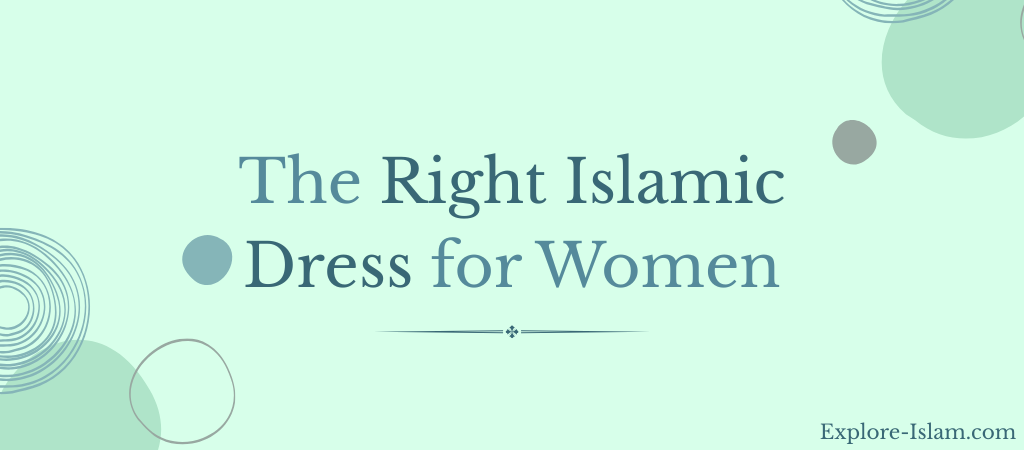The laws of Islam are a reflection of divine wisdom to bring about the well-being of humanity, and Haram things for women in Islam stem from a place of mercy to protect our faith, honor, and dignity.
For the Muslim woman, these guidelines are a shield, preserving her true status and liberating her from the pressures of objectification and the harms prevalent in society. They are not mere restrictions, but a framework for true freedom and peace.
In this article, I will outline some of the key prohibitions (haram) for women in Islam, based on the Qur’an and the authentic traditions of the Prophet Muhammad (peace be upon him).
Understanding these boundaries is a crucial part of a Muslimah’s faith and practice.
The Philosophy of Haram Things for Women in Islam
To understand what is haram for women in Islam, one must first grasp the loving wisdom behind divine law.
So, these prohibitions are not arbitrary rules, but carefully prescribed boundaries from our Creator.
What is the Divine Wisdom in Prohibitions in Islam?
In Islam, we have absolute certainty that whatever Allah has made haram is inherently harmful.
Conversely, whatever He has made halal (permissible) is ultimately good and beneficial for us.
We accept this with faith, even when our limited human understanding cannot immediately grasp the full wisdom behind a ruling. This is the essence of submission to Allah.
The Purpose of Haram Things for Women in Islam is Preserving Femininity and Honor
The prohibitions specific to women are designed to safeguard her unique nature, femininity, and honor.
Islamic law does not view women as objects of desire As is the case in Western culture, but as honored servants of Allah.
These guidelines protect her from exploitation and anything that might diminish her God-given dignity, allowing her inner character to be what defines her.
What is Haram for Women in Islam Regarding Dress & Adornment
A woman’s attire in Islam is a reflection of her identity and modesty. The guidelines for her dress are not meant to conceal her personality, but to allow woman’s personality to shine beyond her physical appearance.
1. Exposing the ‘Awrah’ is Haram for a Woman in Islam
The ‘Awrah’ refers to the parts of the body that must be covered. In the presence of non-mahram men (men she can lawfully marry).
This is based on evidence from the Qur’an and Sunnah, meant to protect her and promote modesty in society.
The primary evidence for covering the ‘Awrah comes from Surah An-Nur. Allah the Almighty commands the believing women:
“And tell the believing women to reduce [some] of their vision and guard their private parts and not expose their adornment except that which [necessarily] appears thereof and to wrap [a portion of] their headcovers over their chests…”
The jurists explain that ‘zīnah’ (adornment) is of two types: natural (the body itself) and acquired (jewelry, makeup). The command is to conceal both.
There has been a scholarly difference of opinion regarding whether it is obligatory for a woman to cover her face and hands in the presence of non-mahram men. According to the Hanbali school, and the more correct opinion within the Shafi’i school, it is obligatory for a woman to cover her face and hands, as they are considered part of her ‘awrah with respect to non-mahram men’s gaze.
On the other hand, the Hanafi and Maliki schools hold that covering the face and hands is not obligatory, but rather recommended. However, scholars from both the Hanafi and Maliki schools have issued fatwas—since earlier times—stating that it becomes obligatory for a woman to cover her face and hands in situations where there is a fear of fitnah (temptation or harm), either because of her exceptional beauty or due to widespread corruption and the prevalence of immoral individuals.
Based on this, it can be said that scholars from all four major schools of Islamic jurisprudence agree that it is obligatory for a woman to cover her face in times of fitnah or societal moral decline. “IslamWeb”
Then the word khumur is the plural of khimār, which linguistically means a headcover. The command is to draw the headcover over the juyūb, which refers to the neckline or opening of the garment.
This verse is explicit in commanding the covering of the hair, neck, and chest, which were sometimes left exposed in pre-Islamic society.
Another key verse is in Surah Al-Ahzab, which instructs women on how to dress when they go out:
“O Prophet, tell your wives and your daughters and the women of the believers to bring down over themselves [part] of their outer garments. That is more suitable that they will be known and not be abused.”
The term jalābīb (plural of jilbāb) refers to a large outer garment that conceals the regular clothes and the shape of the body.
The command to “bring down over themselves” (yudnīna ‘alayhinna) indicates a command to cover the body comprehensively.
The purpose stated in the verse is so they may “be known” as respectable, believing women, and thus be protected from harassment.
This supports the general principle of covering the body to maintain modesty and identity.
2. ‘Tabarruj’ is Haram for Women in Islam
‘Tabarruj’ is a Quranic term that refers to the prohibited act of displaying one’s beauty and adornments in a way that attracts undue attention.
This is a central concept in what is haram for women regarding appearance. It includes wearing clothing that is tight-fitting, transparent, or designed in a way that accentuates the shape of her body, as this contradicts the purpose of hijab.
The prohibition of tabarruj is mentioned directly in Surah Al-Ahzab, in the context of addressing the wives of the Prophet (ﷺ), a lesson for all believing women:
“And abide in your houses and do not display yourselves as [was] the display of the former times of ignorance…”
Any clothing that fails to conceal a woman’s beauty and instead highlights it falls under the category of tabarruj. Therefore, jurists have stipulated that a woman’s dress must not be:
- Transparent: It must not show the skin underneath.
- Tight-fitting: It must not describe the shape of the body’s limbs.
- Attention-grabbing in itself: It should not be so ostentatious in color or design that it defeats the purpose of modesty.
The Prophet also warned against clothing that constitutes a form of tabarruj in a hadith:
“Two are the types amongst the denizens of Hell, the one possessing whips like the tail of an ox and they flog people with their help. (The second one) the women who would be naked in spite of their being dressed, who are seduced (to wrong paths) and seduce others with their hair high like humps. These women would not get into Paradise and they would not perceive the odour of Paradise, although its frag- rance can be perceived from such and such distance (from great distance)”
The description “naked in spite of their being dressed” (kāsiyātun ‘āriyāt) has been interpreted by scholars to mean women who wear clothes that are so thin they reveal what is beneath, or so tight they describe the shape of the body.
Although they are technically “clothed,” they are “naked” in reality because their attire does not fulfill the purpose of covering, thus constituting tabarruj.
3. Wearing Perfume Outdoors is a Specific Haram Act for Women in Islam
It is haram for a woman to wear perfume such that non-mahram men can smell her fragrance when she leaves her home. The Prophet (peace be upon him) warned against this specifically.
The hadith cited in the question is a primary piece of evidence.
“Any woman who puts on perfume and passes by people so that they can smell her fragrance, is an adulteress (zāniyah).”
The term zāniyah (adulteress) is used here to denote the severity of the sin, not that she has committed the legal act of zinā.
It is because her action—wearing a captivating scent in public—is a means that can lead to fitnah (temptation).
It attracts men’s attention, provokes desires, and can be a preliminary step towards that which is unlawful.
And Islam operates on the principle of sadd adh-dharā’i’ (blocking the means to evil). Since wearing strong perfume in the presence of non-mahram men can be a potent means of temptation, it is prohibited to prevent a greater harm from occurring.
4. Imitating Men is a Haram Practice for Women in Islam
Islam honors the distinct natures of men and women. It is haram for a woman to intentionally imitate men in her dress, behavior, or mannerisms that are characteristic of them. This prohibition also applies to men imitating women.
The prohibition is established in a direct and strong statement from the Prophet.
“The Messenger of Allah cursed those men who are in the similitude (assume the manners) of women and those women who are in the similitude (assume the manners) of men”
Another narration from Ibn Abbas specifies this imitation in clothing:
“The Prophet (ﷺ) cursed effeminate men (those men who are in the similitude (assume the manners of women) and those women who assume the manners of men”
The act of cursing (la’nah) by the Prophet (ﷺ) indicates that the action is a major sin (kabīrah).
What constitutes imitation (tashabbuh)? This refers to intentionally adopting the specific characteristics of the other gender. This includes clothing, manner of speaking, gait, and adornments that are culturally and customarily recognized as being exclusive to one gender.
The wisdom behind this prohibition is to preserve the distinct God-given nature (fitrah) of each gender.
Allah created men and women with unique roles, characteristics, and physiology. Attempting to blur these lines is a form of opposition to the natural order and divine wisdom.
For a woman, this means avoiding clothes specifically designed for men and styles that are masculine in their cut and appearance.
Haram Social Interactions and Behaviors for Muslim Women
Islam establishes clear boundaries for social interaction between the genders, and these rules are designed to maintain purity of heart and prevent the societal harms that arise from unchecked mixing.
1. ‘Khulwah’ Seclusion with a Non-Mahram Man is Haram
Khulwah (خلوة) refers to a man and a woman who are not mahram to each other being secluded in a private place where they are concealed from the view of others. This act is haram (forbidden) in Islam based on explicit evidence from the Sunnah.
The primary evidence for this prohibition is a direct statement from the Prophet Muhammad (peace be upon him), as narrated by ‘Umar ibn al-Khattab:
“A man is not alone with a woman except that the third one present is the Shaytan (Satan).”
Another narration from Ibn ‘Abbas reinforces this.The Prophet (peace be upon him) said:
“No person (man) should be alone with a woman except when there is a Mahram with her.”
Muslim jurists have unanimously agreed on the prohibition of khulwah based on these clear texts.
The reasoning methodology applied here is Sadd al-Dhara’i’, which means “blocking the means” to evil.
Shaytan’s presence is not benign; his mission is to whisper temptations, beautify sinful thoughts, and incite desires that can lead to major sins, such as zina (fornication or adultery). By forbidding the seclusion itself, Islam closes the most direct door to such temptations before they can even begin.
The prohibition also serves to protect the honor of both the man and the woman.
2. Softening the Voice is a Prohibited Behavior for Women
When speaking to non-mahram men, a Muslim woman is commanded to maintain a dignified and serious tone, avoiding any form of speech that could be perceived as alluring, flirtatious, or overly gentle.
Allah instructs the wives of the Prophet, and by extension all believing women, in the Qur’an:
“…then do not be soft in speech [to men], lest he in whose heart is disease should covet, but speak with appropriate speech.”
The verse provides the reason for the prohibition: “lest he in whose heart is a disease should covet.” The “disease” (maraḍ) here refers to the sickness of hypocrisy or illicit sexual desire.
The soft speech acts as a trigger, kindling false hopes and evil thoughts in the heart of a man who harbors such moral weakness.
3. Unnecessary Mixing with Non-Mahram Men
Interactions between men and women are permissible for valid and necessary reasons provided that Islamic etiquette is strictly observed, but casual and purposeless social mixing (ikhtilat) is forbidden.
Allah commands both believing men and women to lower their gaze, which inherently implies a separation that prevents prolonged and unnecessary staring and intermingling.
“Tell the believing men to reduce [some] of their vision and guard their private parts. That is purer for them. Indeed, Allah is Acquainted with what they do. (30) And tell the believing women to reduce [some] of their vision”
Also, the Sunnah established a clear physical separation between men and women during prayer, the highest form of worship.
This is a part of a comprehensive system designed to minimize fitnah (temptation).
If segregation is mandated in the most sacred of places (the mosque) during the most sacred of acts (prayer), then it is logical that casual, purposeless mixing in leisurely environments (like social gatherings, parties, or casual hangouts) is even more deserving of prohibition.
Constant interaction normalizes behaviors that Islam seeks to prevent, eroding the collective sense of modesty (haya’) in the community.
Specific Rulings on What is Haram for Women in Worship
Within acts of worship, Allah has set forth specific guidelines for women, and these rulings are not punishments; rather, they are expressions of His mercy and recognition of her unique physical nature.
1. Prayer and Fasting Are Haram for Women During Menstruation and Post-Natal Bleeding
It is forbidden (haram) for a woman experiencing menstruation (hayd) or post-natal bleeding (nifas) to perform the formal prayer (Salah) or to fast during the month of Ramadan.
This is a divine concession, acknowledging the physical and emotional challenges a woman undergoes during this time.
And she is exempted from prayer without the need for recompense, but she is required to make up for any missed fasts of Ramadan.
The acts of worship are determined by divine revelation and are not subject to personal reasoning or analogy in their core components.
Since the Prophet prohibited women from prayer and fasting during menstruation, then differentiated between prayer and fasting in this specific context, Muslims are bound to follow this prescription without demanding a rationale beyond the revealed texts, accepting it as the wisdom of the Lawgiver.
Therefore, a woman who refrains from prayer and fasting during her menses is in a state of obedience and worship, as she is adhering to the command of Allah and His Messenger.
2. Entering the Main Prayer Area of a Mosque During Menstruation is Haram
It is haram for a menstruating woman to remain or stay in the main prayer hall of a mosque (the musalla).
However, there is a difference of opinion regarding her passing through it or being present in other parts of a mosque complex, such as classrooms or annexes.
The primary evidence for this prohibition is the hadith of Umm ‘Atiyyah al-Ansariyyah who said: “He (the Messenger of Allah) commanded us that we should take out unmarried women and the screened away ladies for ‘Id prayers, and he commanded the menstruating women to remain away from the place of worship of the Muslims.”
(Sahih Muslim).
And some scholars draw an analogy between a menstruating woman and a person in a state of major ritual impurity (janabah). They cite the following Qur’anic verse:
“O you who have believed, do not approach prayer while you are intoxicated until you know what you are saying or in a state of janabah, except those passing through [a place of prayer], until you have washed [your whole body].”
Jurists argue that if a person in a state of janabah—which can be removed at will by performing ghusl (ritual bath)—is only permitted to pass through the mosque, then it is even more fitting that a menstruating woman, whose state is prolonged and cannot be immediately removed, is prohibited from staying there.
Haram Acts for Women in Marriage, Travel, and Personal Conduct
The scope of Islamic guidance extends to all facets of life, including major life decisions and personal habits. These rules further serve to protect a woman’s faith and dignity in different contexts.
1. Marrying a Non-Muslim Man
It is unequivocally haram for a Muslim woman to marry a non-Muslim man, regardless of whether he is Christian, Jewish, or of any other faith or lack thereof. The marital bond in Islam is a foundation for a family built upon shared faith and practice.
Allah says in the Qur’an:
“…And do not marry polytheistic men [to your women] until they believe. And a believing slave is better than a polytheist, even though he might please you…”
The husband is the head of the household and the guide for the family. A non-Muslim man cannot be the spiritual leader of a Muslim family or be responsible for raising children upon the principles of Islam. This ruling preserves the faith of the woman and her future offspring.
2. Specific Prohibitions in Body Alteration
Islam teaches contentment with the natural form Allah has created. Consequently, permanent and deceptive alterations to the body are forbidden. This is because they can imply dissatisfaction with Allah’s creation and often involve deception.
Prohibited acts in this category include:
A. Tattooing is Haram
The Prophet (peace be upon him) cursed the woman who applies tattoos and the one who has them applied.
B. Plucking the Eyebrows (An-Nams) is Haram
The removal of hair from the eyebrows is also a cursed act.
C. Hair Extensions (Al-Wasl) Are Haram
Adding hair, especially human hair, to one’s own to lengthen it is forbidden. The Prophet (peace be upon him) cursed the woman who adds hair extensions and the one for whom it is done.
3 Traveling Without a Mahram is Haram
It is haram for a woman to undertake a journey that is considered “travel” (defined as a journey lasting a day and a night) without a mahram.
A mahram is her husband or a man whom she is permanently forbidden to marry due to blood ties, marriage, or suckling (e.g., her father, brother, son, or uncle).
The Prophet (peace be upon him) said:
“It is not permissible for a woman who believes in Allah and the Last Day to travel for one day and night except with a Mahram.”
(Al-Bukhari).
This ruling is a measure for her protection, safeguarding her from the potential dangers and vulnerabilities of travel.
That Brings Us to the Conclusion That…
The prohibitions ordained by Allah are not meant to confine a woman, but to elevate her.
They are a manifestation of His love and wisdom, providing a clear path to righteousness, peace, and true honor.
A Muslim woman liberates herself from society’s fleeting standards and anchors her self-worth in her devotion to her Creator by embracing divine guidance.
These laws protect her spirit, her body, and her place in the world as an honored and dignified servant of Allah.
We invite you to step beyond the distorted narratives often presented by Western media and propaganda.
If you have further questions or need clarification, it’s always best to consult with knowledgeable and trustworthy sheikhs. Feel free to browse through our blog for more articles on women’s issues.
















